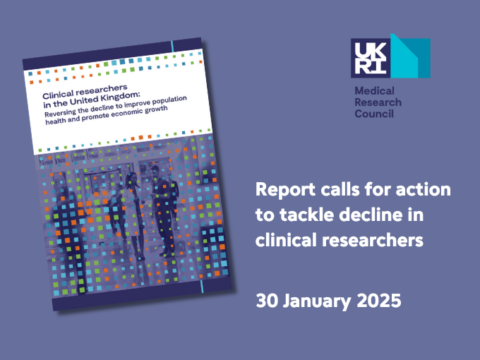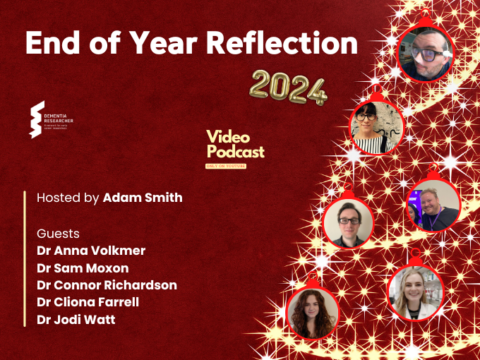Much of our discussion around a career in academic research inevitably revolves around overcoming challenges or barriers to progression, work life balance or job satisfaction. As someone who writes about these things every month, and am responsible for my fair share of academia bashing, found myself backed into a difficult corner recently.
To set the scene, I was in the car with my mum while she was being super helpful in reminding me how bad I had let the weeds grow in front of the house, I had a tiny little outburst about how I had done three twelve hour days in a row and had a meeting coming up that I was stressed about and it perhaps wasn’t a great time to discuss my poor horticulture skills. There is a small chance my outburst was louder and more frantic than I would have liked it to have been…. I was taken aback however from her response as she turned to me and said “I don’t know why you don’t quit… Ever since you started your PhD I’ve never seen you happy about work, you’re always stressed and seem miserable.” I didn’t really know what to say, luckily we had a quietly tense drive to mull things over. What she said stuck with me for the next week. I started to question if I really came across that way to friends and family, and worse was it true. Should I just quit? After a while I got quite annoyed, because I do actually love my work, I love science and didn’t like that I came across that way. So here I am making a defence of research!
Science
The first defence is maybe a little corny, but I genuinely do love science. Always have and always will. From dissections and titrations in school through to today. I count myself lucky that I’ve been able to study and work in many disciplines from biochemistry labs to data science. When I think to myself what other careers I could do the one thing that mostly pulls me back is thinking about not being at the sharp edge of science, finding answers to things genuinely unknown. In my work now I see data and statistical science like a puzzle, I can get quite lost for hours coding trying out different methods to model a question. Going back to the start one of the reasons I was working so late was because I got caught up doing analysis for some neuropathology data, got carried away and ended up writing about 3000 lines of code because I enjoy it. I like reading about a method or analysis technique, learning the codes and then perfecting the visualizations to look good and streamlining the code the best I can. Yes it’s nerdy and a little sad but I love it!
People
Another big aspect of research is the people I work and have worked with. Yes everywhere you work there will be those who stand out and make a mark on you, become an enduring friend and I count many of the people I’ve worked with in that category. Something about research is unique though, it’s somewhere you can work alongside others who find all those nerdy little things that excite you excite them too! In my experience I have also enjoy the mentorship, which I think is unique to research. In my case my teachers became my PhD supervisors and then my colleagues, there is a natural environment where my boss has been my teacher and much of the job is to never stop learning. I have been lucky enough to work with some of the countries and the world’s leaders in their field, most of which have been a real privilege learn from and become genuine friends with. Eventually you begin to supervise students of your own and teach, I love this part of the job. Teaching helped me build confidence in my own abilities, giving me a different kind of satisfaction working with people less experienced as me but recognising the same drive and scientific curiosity.
Experiences
Personally I have been lucky to have some great experiences along the way in research. I love communicating science, some of you may know I can be a little chatty with a tendency to overshare, so given a chance to talk to people about myself for stretches of time comes pretty naturally, and I’ve been able to do that on some pretty big and daunting stages. The big one of course is travel, I’ve been very lucky to attend an international conference almost every year since starting my PhD and have loved every trip from Amsterdam to San Francisco. Again not only the places themselves, but the experience of meeting new people from around the world, connecting and exploring new places together. I now look forward to conferences more and more to catch up with friends from as far as Australia.
Practicalities
Finally, there are just some practical reasons for working in academia. When I was younger I worked in a few places which could be uncomfortable and experienced homophobia. By and large every research environment I’ve worked has been progressive and inclusive, with the vast majority of people trying to make things better. I also enjoy the flexibility, one of things I find most challenging is keeping self-motivated working on very individual projects like a fellowship, but I think I would find it very difficult working again in environment where there is a lot of expectation to be at a certain place at a certain time and not have control to plan work around my life and make my own day to day decisions about my work. I’ve also had both first hand and second hand experience of tough things happening in life, illness physical and mental, bereavements and relocations and on although it’s not perfect in my experience my research groups and leaders have always been supportive. Last but not least the pension is pretty good too!

Dr Connor Richardson
Author
Dr Connor Richardson is a Neuro-epidemiology Research Associate in the Newcastle University Population Health Sciences Institute. Connor is the research statistician for the Cognitive Function and Ageing studies (CFAS) multi-centre population cohort. His research interest lies in using advanced statistical modelling and machine learning to measure dementia risk. Connor blogs about his research, Equality, Diversity and Inclusion and sometimes his Pomapoo’s.

 Print This Post
Print This Post






